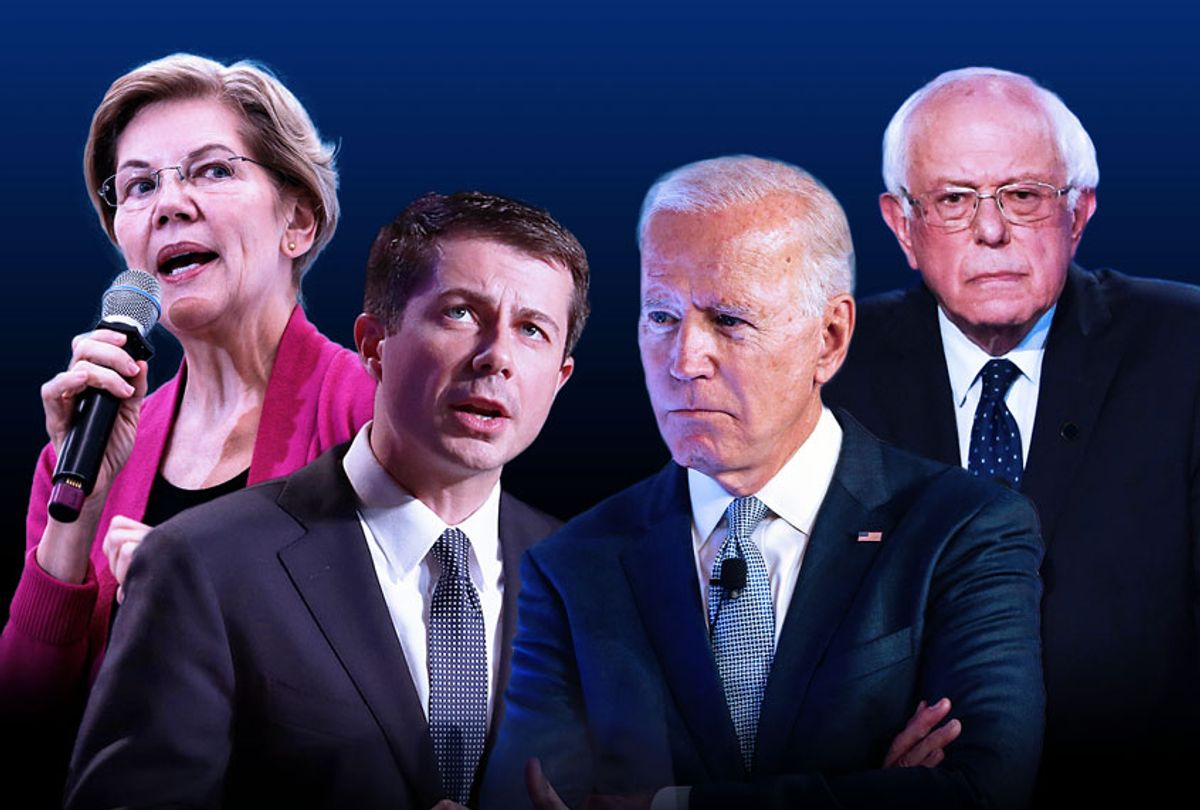Ding dong, the witch is dead. Or rather the House has impeached Donald Trump over allegations that he withheld aid to Ukraine in order to pressure its new president into opening an investigation into one of his potential political opponents, and it is likely that the Senate will exonerate him, leaving it up to the unreliable American electorate to decide the monster’s fate, which is currently divided almost down the middle on support for removal.
One of the favorite topics of the commentariat, the members of which continually act like they’ve stumbled upon through a brilliant moment of revelation, is partisanship. The genius pundit, sitting behind a futuristic-style table at CNN, will typically utter the word, “tribalism,” as if he has created the cure for cancer.
For all of the rambling, there is little insight into partisanship, and even less willingness to honestly confront it, and that is because, in this case, as with many others, the truth itself is partisan.
I was recently prodded to consider the realities — and futilities — of persuasive writing when a friend observed that I regularly include the phrase “people of conscience” in political essays to refer to those who might reflect favorably upon my analysis. I’ve also used “voters of reason,” “citizens of conscience,” and my personal favorite, “anyone with minimal sanity.”
Joan Didion once advised writers to avoid the temptation of repeating a sentence construct that “works” too frequently. My answer to my friend’s inquiry about my own violation of Didion’s rule is that I have always despised when writers abusively employ the pronoun “we,” because it takes far too much granted, and that when writing about politics, Donald Trump’s poll numbers prove that “Americans” or another sweeping term of populism is meaningless.
So, I am left communicating to the people who believe that locking children in cages, where they are vulnerable to sexual abuse, because of their immigration status is wrong. I am left writing to those who believe it is a moral outrage that there are citizens of the world’s wealthiest nation dying for lack of insulin. I am left writing to Americans who believe that the president mocking a disabled journalist, insulting a reporter by referring to her menstrual cycle, and cracking wise that a deceased Congressman is in hell is not merely “politically incorrect,” but indicative of the kind of cruelty that makes the detention of children and the horrific gaps of health care inequality politically feasible.
In other words, “people of conscience” and “anyone with minimal sanity.”
There are many causes of ideological stratification — gerrymandering, social media, Fox News — but what few of the handsomely paid punditry acknowledge is that it only travels in one direction, and that is rightward. In the current election season, there is significant speculation regarding whether or not a candidate who is “too far left,” meaning Bernie Sanders or Elizabeth Warren, will alienate “moderate” voters. This question is never applied to a right wing candidate no matter how regressive his ideas.
Tax cuts for billionaires, apparently, will not repel the romanticized centrists, nor will appointing judges who will undermine abortion rights, or eliminating the last remnants of an already paltry social safety net for the poor. It appears that the political stalemate in America is that right wing candidates and officials are free to do whatever they please, while progressives must answer to an invisible ombudsman.
Part of my identification of my audience is a refusal to entertain the delusion that more than a few Trump voters, or even those who still cling to the dubious label “independent,” which I suspect translates into “right winger who feels slightly bad about it,” are susceptible to conversion. If Trump’s words and deeds, along with those of the Republican Senate and the Bush administration of the early years of the 21st Century, have not already convinced a voter that the Republican Party is dangerous to human life, then little anyone writes will make a difference.
It is true that the Democratic Party is only the second most dangerous party in the country, but it is within their ranks that debates about Medicare for All, the most effective means of combating climate change, and criminal justice reform exist. So, for better and worse, “voters of conscience” are relegated to the too often, too hapless party of wafflers and hedgers.
Writers like me are then standing behind the pulpit facing not the congregation, but the choir. The hope is that preaching to the choir will make its members sing louder and better. It turns out, contrary to the analysis of most political commentators, that the choir is quite large and capable.
Polls indicate that anywhere from 51 to 70 percent of Americans support Medicare for All. According to a September 2019 poll, a majority also favored tuition free college and student debt relief. Most Americans, unlike the Republican Party, view climate change as a crisis necessitating significant action.
The numbers on economic and environmental issues become even more encouraging among voters under the age of 35 — the majority of whom also support the legalization of marijuana.
Public opinion, especially among the demographic that represents the future of the country, makes it bizarre that pundits, debate moderators, and newspaper columnists are not demanding answers from Republicans and centrist Democrats as to why they are so “elite” and “out of touch” that they aren’t advocating a free health care, pot for everybody, tree-hugging agenda.
The “polarization” and “tribalism” routine is actually the bamboozlement of the left, manipulating its adherents into believing that the responsibility rests with them to make concessions to the “reasonable” middle. As it ages, its biases become more obvious, and its concerns more distant from the lived experience of most Americans, the “reasonable” middle of baby boomers, moderates, and seekers of compromise with politicians whose positions are inhumane, begins to appear “radical,” “unelectable” and “extreme.”
“Voters of conscience” can win.



Shares